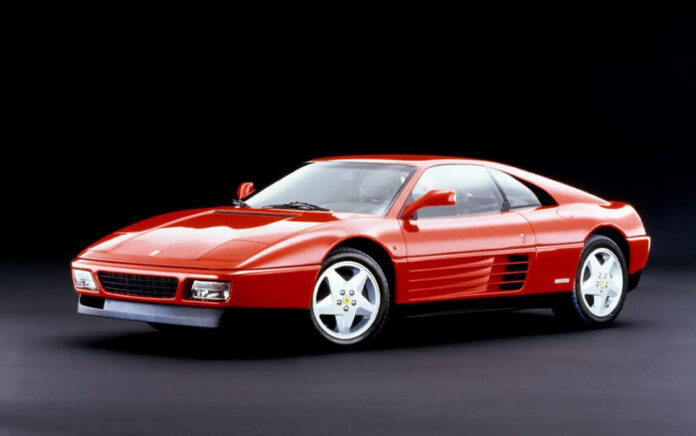Luxury cars have always captivated the imagination of automobile enthusiasts, combining elegance, superior performance, and innovative features. Over the years, these vehicles have evolved significantly, adapting to changing trends and technological advancements. From the classic designs that exude timeless charm to cutting-edge modern marvels, luxury cars have undergone a remarkable transformation.
In this article, we will explore the fascinating journey of luxury cars, exploring their evolution from classic to modern designs.
Popular Luxury Car Brands Among Younger Generations
Some of the most popular luxury car brands among younger generations include:
- BMW: BMW is a top choice for younger buyers, with 1 in 6 Gen Zers owning a BMW as their first car. The brand is known for its quality, performance, and innovative features, making it a popular choice among millennials and Gen Z.
- Audi: Audi is another luxury car brand that has gained popularity among younger generations. 1 in 12 Gen Zers has an Audi as their first car, and 39% of Gen Z buyers have purchased a luxury car, with Audi being one of the top choices.
- Tesla: Tesla, the electric vehicle manufacturer, has also become a popular choice among younger buyers. The brand’s focus on sustainability and advanced technology has resonated with millennials and Gen Z, making it a top choice for luxury car buyers.
- Gucci: While not a car brand, Gucci is still the top luxury brand young people want to own, according to a YPulse survey. This shows that younger generations are interested in luxury brands, even if they are not car brands.
- Volvo: Volvo has emerged as a successful car brand among Generation Z, ranking fifth in the overall ranking. The brand’s focus on sustainability and digital initiatives has made it a popular choice among younger buyers.
These luxury car brands have managed to capture the attention of younger generations by offering a combination of performance, innovation, and style. As the demand for luxury cars continues to grow, these brands are likely to remain popular among millennials and Gen Z buyers.
The Classic Era: Timeless Elegance
During the early 20th century, luxury cars emerged as a symbol of opulence and prestige. These vehicles were meticulously crafted, showcasing exquisite design elements and attention to detail. The classic era witnessed the rise of iconic automotive brands such as Rolls-Royce, Bentley, and Cadillac, which set the benchmark for luxury and sophistication.
1. Rolls-Royce: The Epitome of Luxury
Rolls-Royce, established in 1906, epitomized luxury and refinement. Their classic models, such as the Silver Ghost, embodied the spirit of the era. These cars featured sweeping curves, ornate grilles, and handcrafted interiors adorned with the finest materials. Rolls-Royce vehicles were known for their smooth and silent performance, offering an unparalleled driving experience.
2. Bentley: Power and Elegance
Bentley, founded in 1919, introduced a blend of power and elegance in their luxury cars. Their classic models, like the Bentley Blower, boasted powerful engines and sleek designs. These vehicles were favored by motorsport enthusiasts and distinguished individuals alike. Bentley’s commitment to craftsmanship and performance cemented its status as a leading luxury car manufacturer.
3. Cadillac: American Luxury
Cadillac, an American luxury brand established in 1902, played a significant role in shaping the classic era of luxury cars. Cadillac models, such as the Cadillac V-16, showcased bold and distinctive designs. These cars featured long hoods, elegant fenders, and lavish interiors. Cadillac’s pursuit of innovation and luxury made it a prominent player in the luxury car market.
The Mid-Century Modern: Innovations and Glamour
As the mid-20th century approached, luxury cars underwent transformative changes, reflecting the spirit of progress and innovation. This period witnessed the integration of advanced technologies and a shift towards sleeker, more aerodynamic designs. The mid-century modern era brought forth an exciting array of luxury cars that combined performance, style, and luxury in unprecedented ways.
1. Mercedes-Benz: Engineering Excellence
Mercedes-Benz, renowned for its engineering prowess, introduced groundbreaking luxury cars during the mid-century modern era. The Mercedes-Benz 300 SL, with its distinctive gull-wing doors, became an iconic symbol of automotive innovation. These vehicles featured advanced suspension systems, fuel injection technology, and luxurious interiors. Mercedes-Benz set new standards for performance and safety, establishing itself as a leader in the luxury car segment.
2. Jaguar: Grace and Speed
Jaguar, a British luxury car manufacturer, made a significant impact during the mid-century modern era with its elegant and high-performance vehicles. The Jaguar E-Type, often hailed as one of the most beautiful cars ever created, showcased a harmonious blend of grace and speed. These cars boasted powerful engines, aerodynamic designs, and luxurious interiors. Jaguar’s commitment to style and performance made it a coveted brand among luxury car enthusiasts.
3. Ferrari: The Prancing Horse
Ferrari, synonymous with passion and speed, emerged as a dominant force in the luxury car industry. During the mid-century modern era, Ferrari introduced iconic models like the Ferrari 250 GTO. These cars combined breathtaking aesthetics with exceptional performance. Ferrari’s dedication to motorsport excellence and uncompromising craftsmanship solidified its reputation as a purveyor of luxury and adrenaline.
The Contemporary Era: Tech-driven Sophistication
In the contemporary era, luxury cars have embraced cutting-edge technologies, setting new benchmarks for innovation, performance, and comfort. These vehicles feature state-of-the-art infotainment systems, advanced driver-assistance features, and hybrid or electric powertrains. Contemporary luxury cars strike a balance between timeless elegance and futuristic functionality, catering to the demands of discerning customers.
1. Tesla: Electric Revolution
Tesla, a trailblazer in the electric car segment, disrupted the luxury car landscape with its innovative approach. Models like the Tesla Model S and Tesla Model X introduced all-electric powertrains while offering exceptional range and performance. Tesla’s sleek designs, advanced autopilot capabilities, and over-the-air updates revolutionized the luxury car industry, making electric vehicles desirable and practical.
2. BMW: Performance and Connectivity
BMW, renowned for its driving dynamics, has embraced technology in its contemporary luxury cars. The BMW 7 Series exemplifies the brand’s commitment to performance and connectivity. These vehicles feature cutting-edge infotainment systems, gesture controls, and advanced driver-assistance technologies. BMW continues to innovate, offering hybrid and electric options in their lineup, ensuring a sustainable future for luxury cars.
3. Audi: Design and Innovation
Audi has gained recognition for its sleek designs and technological advancements. The Audi A8, a flagship luxury sedan, showcases the brand’s commitment to design and innovation. These cars feature luxurious interiors, advanced driver-assistance systems, and seamless connectivity. Audi’s integration of virtual cockpit displays and intelligent safety features demonstrates their dedication to creating a truly modern and sophisticated driving experience.
Demand for Luxury Cars Changed Over Time
The demand for luxury cars has evolved, driven by various factors such as changing consumer preferences, technological advancements, and economic conditions. Here are some key aspects of the changing demand for luxury cars:
- Economic factors: Luxury cars are often considered a status symbol, and their demand is sensitive to economic fluctuations. During economic downturns, consumer confidence and spending power may decrease, leading to a decline in demand for luxury cars.
- Technological advancements: As technology continues to advance, luxury cars have become more sophisticated, featuring advanced features and amenities. This has led to an increase in demand for luxury cars that cater to the growing desire for comfort, luxury, and performance.
- Sustainability and environmental considerations: With growing concerns about the environment and the need for sustainable transportation, the demand for electric and hybrid luxury cars has increased. This shift in consumer preferences has led to the development of luxury electric vehicles, such as the Tesla Model S, which has become a popular choice among luxury car buyers.
- Distribution of wealth: The global luxury car market relies on the distribution of wealth, which explains why countries with a growing economy and increasing affluence have a higher demand for luxury cars.
- Changing consumer preferences: Luxury car buyers today are more focused on comfort, connectivity, and advanced technology. As a result, luxury car manufacturers have started to prioritize these features in their vehicles, catering to the evolving demands of consumers.
As the luxury car market continues to expand, it is expected to grow at a CAGR of 10.5% from 2023 to 2030, reaching a market size of USD 2.55 trillion by 2030.
Conclusion
The evolution of luxury cars from classic to modern designs is a testament to the ever-changing landscape of automotive craftsmanship and innovation. From the timeless elegance of the classic era to the tech-driven sophistication of the contemporary era, luxury car manufacturers have continuously pushed boundaries to redefine luxury and deliver exceptional experiences to their customers.
As we move forward, we can expect further advancements in electric and autonomous technologies, ensuring that luxury cars remain at the forefront of automotive excellence. Whether it’s the allure of classic designs or the allure of cutting-edge features, luxury cars will continue to captivate enthusiasts and symbolize the pinnacle of automotive luxury.


